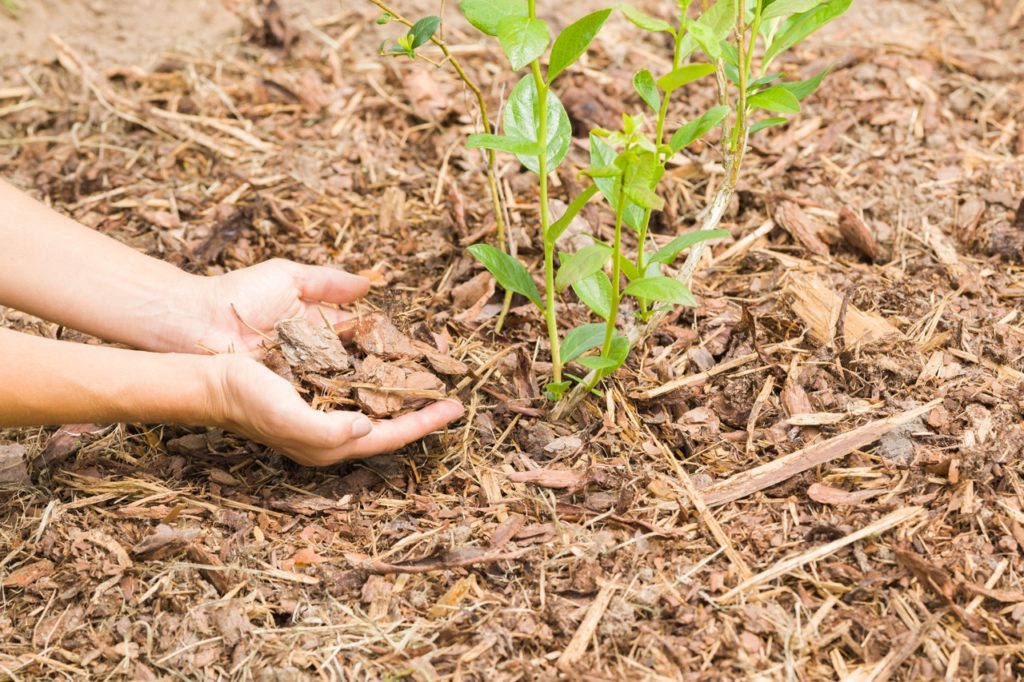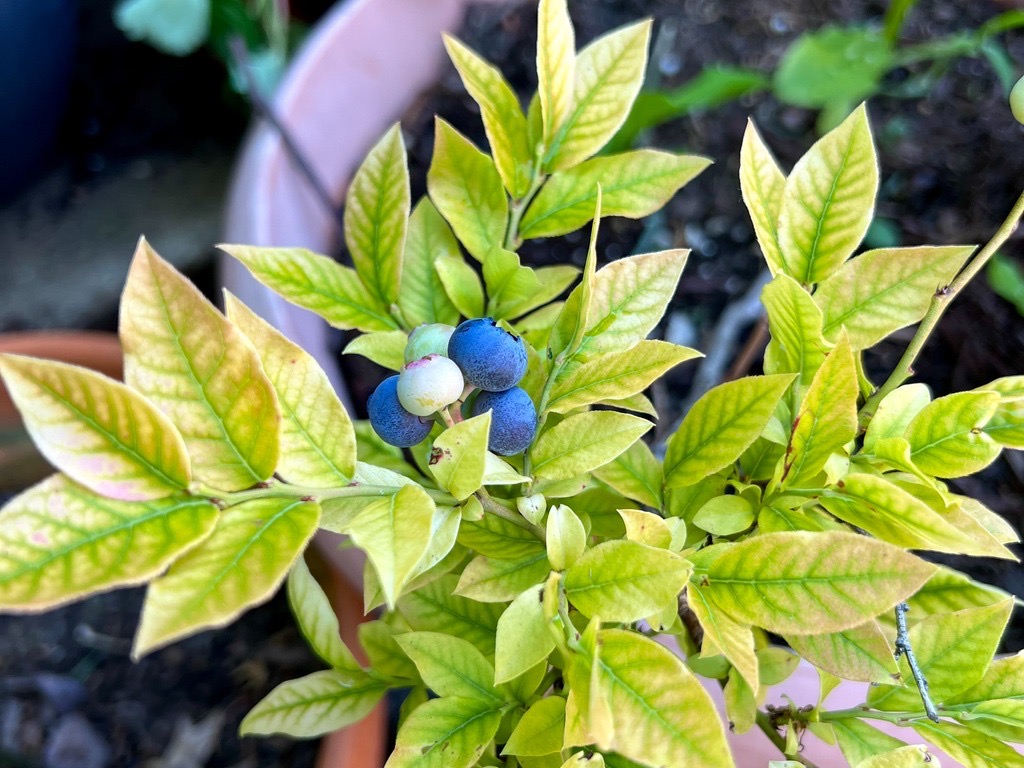The Secret To Bountiful Blueberry Fruiting? Use Suitable Mulch And Feed Annually


Ed is a horticultural therapist, professional gardener and writer. Ed has a BSc in Occupational Therapy from Coventry University and a Diploma in Social and Therapeutic Horticulture (DipSTH) via Thive, the RHS and Pershore College. Ed runs a community kitchen garden in West Sussex, where he leads horticultural therapy sessions.
Reviewed By COLIN SKELLY

Colin is a Horticulturist and Horticultural Consultant with experience in a range of practical and managerial roles across heritage, commercial and public horticulture. He holds the Royal Horticultural Society’s Master of Horticulture award and has a particular interest in horticultural ecology and naturalistic planting for habitat and climate resilience.
IN THIS GUIDE
BLUEBERRY GUIDES
Container Growing
Cuttings Propagation
Feeding
Harvesting
Pruning
Repotting
Varieties
Winter Care
Blueberries are native to North America and not only produce delicious fruits, but beautiful autumnal foliage and are well suited to our UK climate.
Blueberry shrubs prefer a moist and well-drained soil and they aren’t known for being massively hungry feeders.
However, there are times when blueberry shrubs can benefit from being fertilised.
Use Suitable Mulch
Whether grown directly in soil or in containers, blueberry plants benefit from a mulch on planting and annually in spring thereafter.
A decent layer of mulch will not only give the plants a boost but help conserve moisture, keeping the soil moist which blueberries prefer as well as helping suppress any weeds.

Mulches for blueberries need to be neutral or acidic, as they prefer ericaceous soil.
It is advisable to avoid the use of well-rotted manure or mushroom compost as this can be alkaline and alter the pH of the soil.
Suitable mulch material for blueberries can include leaf mould, ericaceous compost or composted pine needles and bark.
Chlorosis
Blueberry plants can sometimes develop yellowing of the leaves, potentially indicating that there may be chlorosis present, which is when the leaves don’t produce enough chlorophyll.1Fowler, A. (2018, August 18). Why is my blueberry bush turning yellow and producing hardly any fruit? The Guardian. Retrieved March 13, 2023, from https://www.theguardian.com/lifeandstyle/2016/oct/22/blueberry-bush-yellow-leaves-not-much-fruit-alys-fowler
Chlorosis in blueberries is most often caused by low levels of iron in the plant as a subsequence of the soil pH being too high.
Blueberries require a maximum soil pH of 5.5 to grow well and produce a healthy crop of fruit in the summer.
However, if the pH has risen above this, it can be lowered by using sulphur chips or sequestrene, which in turn may help the foliage produce enough chlorophyll and return to its normal green.

“I tend to use a seaweed-based liquid feed for fruit in containers,” shares Colin Skelly, a Horticultural Consultant.
“If my blueberries start to yellow, I have a liquid seaweed feed with added sequestered iron that will alleviate the chlorotic symptoms.
“There is likely to be an underlying reason that will need to be resolved, usually related to ensuring the soil pH is low enough.”
Watch out for this and amend the pH of your soil as appropriate.
Annual Feeding
Blueberries grown in the ground don’t tend to need regular feeding, apart from an annual mulch and possibly an application of a nitrogen-rich fertiliser in spring.
However, when blueberries are grown in containers, they will need feeding regularly during the growing season to replenish any leached nutrients.

From April through to September it is recommended to apply an ericaceous feed every 4-6 weeks to encourage healthy growth and a good harvest.
If a blueberry shrub grown in the ground is displaying signs of poor growth or fruit production, it may be advisable to apply an application of ericaceous feed as a one-off to see if it helps stimulate any growth.
References
- 1Fowler, A. (2018, August 18). Why is my blueberry bush turning yellow and producing hardly any fruit? The Guardian. Retrieved March 13, 2023, from https://www.theguardian.com/lifeandstyle/2016/oct/22/blueberry-bush-yellow-leaves-not-much-fruit-alys-fowler
